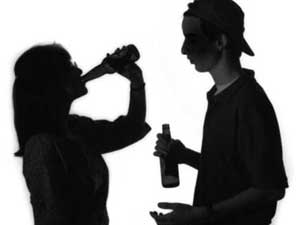 If you are concerned about your teen or young adult’s drug or alcohol use, pay close attention to warning signs of abuse or those most at risk for abuse. Teens or young adults who are most at risk for substance abuse, tend to demonstrate the following red flags:
If you are concerned about your teen or young adult’s drug or alcohol use, pay close attention to warning signs of abuse or those most at risk for abuse. Teens or young adults who are most at risk for substance abuse, tend to demonstrate the following red flags:
1. Risk taking. Especially when coupled with boredom. Try to encourage your kid to engage in healthy challenges that involve risk taking such as learning a new sport or activity, so drugs or alcohol isn’t used to fill that boredom and achieve a high associated with risk taking.
2. Anxiety. Some anxiety is good for teens and young adults. It can be a motivating force for them. But too much and they might seek relief through drugs, alcohol and destructive behavior.
3. Depression. Some moodiness, lethargy, and sadness can be very typical for a teen or young adult, but anything that is affecting their daily function should raise a red flag.
4. Social isolation. Some kids are more of loners than others and there isn’t anything wrong with that. But keep an eye on a kid who seems uncomfortable with their social alienation. Kids will do drugs or alcohol in order to fit into a group or escape the pain of isolation.
5. Avoiding emotions. If you find your kid continues to display emotional avoidance they might be at risk for substance abuse. Help them find healthy ways to process their emotions so they don’t turn to drugs or alcohol to self-medicate.
So how do you help your teen or young adult if you notice these red flag signs of abuse or potential abuse. Drugfree.org has a great article about how to help someone make a change. As a parent, you play a key role in helping your kid and being a great motivator for change. You can have a “direct impact on your loved one’s motivation: when we can start with them, they are more likely to come along.” (Drugfree.org)
Other great resources for recognizing signs of abuse and ways to help your teen or young adult, I recommend these sites: The Center for Motivation and Change, The Partnership and Drugfree.org, National Institute on Drug Abuse, and Shatterproof.org. You can also contact ExecuCare for more information or for more tips on how how to be a motivator in your teen or young adult’s life.


